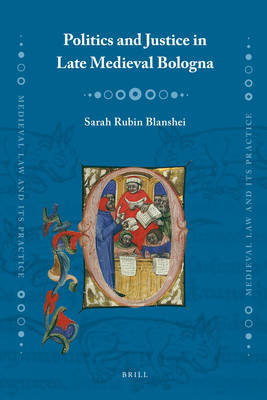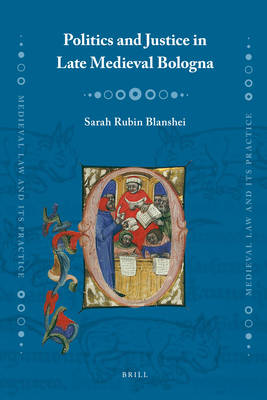
- Afhalen na 1 uur in een winkel met voorraad
- Gratis thuislevering in België vanaf € 30
- Ruim aanbod met 7 miljoen producten
- Afhalen na 1 uur in een winkel met voorraad
- Gratis thuislevering in België vanaf € 30
- Ruim aanbod met 7 miljoen producten
Zoeken
Omschrijving
This book is the first to investigate the practice of summary justice in a late medieval Italian commune. In delineating the political and social context of that development in late medieval Bologna, it also is the first to study the phenomenon of oligarchy not only at the level of the executive body of a commune, but also in the broader councils of commune and popolo, as well as among the ranks of the enfranchised political class. The dominant popolo party constructed itself through multiple forms of exclusion that deeply affected the administration of justice and led to the rise of new institutions of judicial appeal and equity. Exclusion also led to shifting concepts of the legal status and perceptions of social identity of insider and outsider, of popolano and magnate, as revealed in the testimony of witnesses in trial records. Bologna's rich archival sources make it possible to bring a new perspective to key issues in legal and social history.
Specificaties
Betrokkenen
- Auteur(s):
- Uitgeverij:
Inhoud
- Aantal bladzijden:
- 684
- Taal:
- Engels
- Reeks:
- Reeksnummer:
- nr. 7
Eigenschappen
- Productcode (EAN):
- 9789004182851
- Verschijningsdatum:
- 10/05/2010
- Uitvoering:
- Hardcover
- Formaat:
- Genaaid
- Afmetingen:
- 163 mm x 241 mm
- Gewicht:
- 1088 g

Alleen bij Standaard Boekhandel
+ 836 punten op je klantenkaart van Standaard Boekhandel
Beoordelingen
We publiceren alleen reviews die voldoen aan de voorwaarden voor reviews. Bekijk onze voorwaarden voor reviews.








